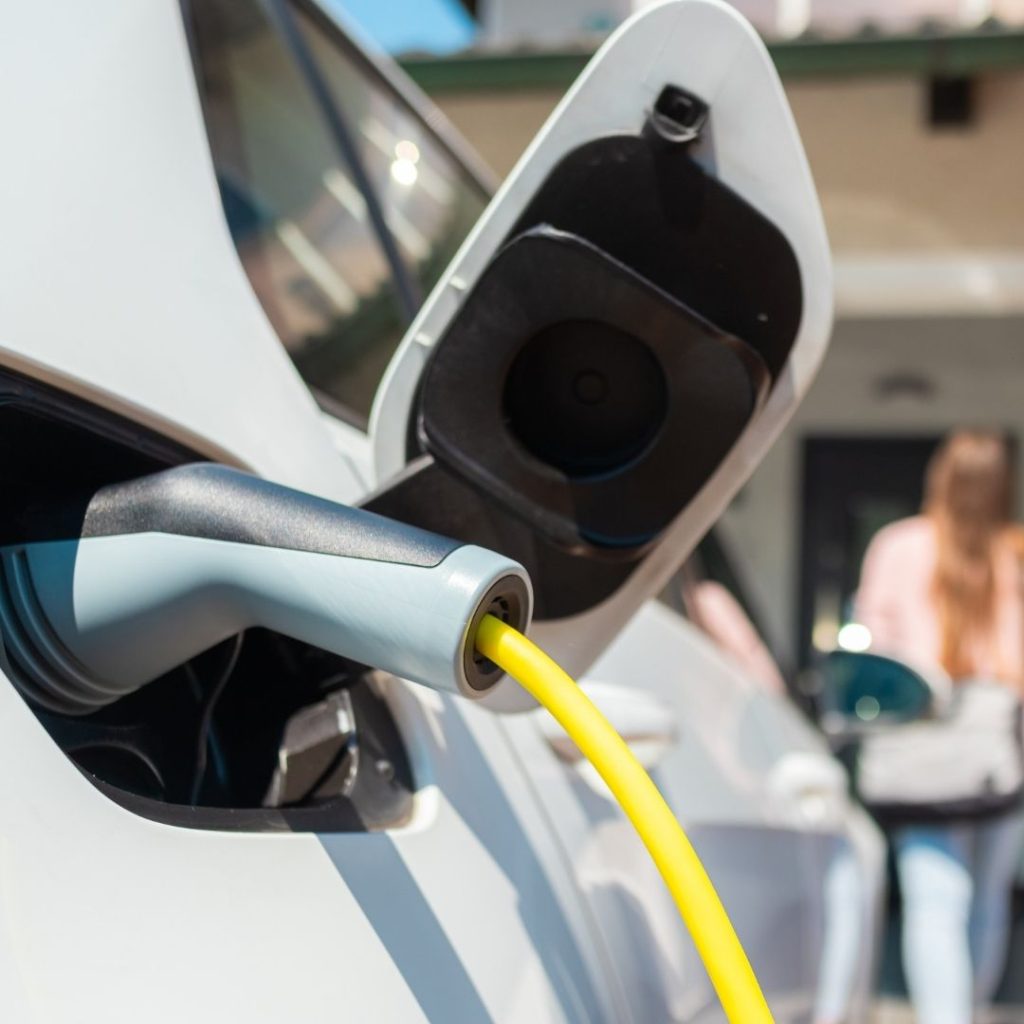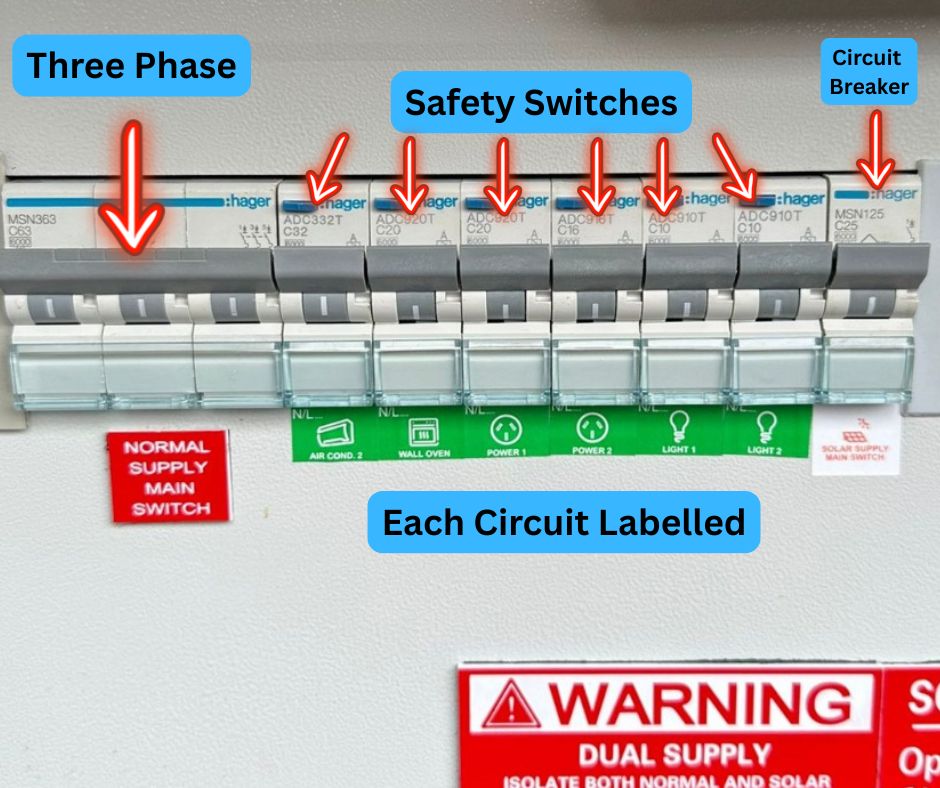Why It's Crucial to Upgrade Your Switchboard for Safe Home EV Charger Installation
Absolutely! In numerous households throughout Melbourne, the process of installing an EV charger frequently necessitates a switchboard upgrade. Many older switchboards do not offer the essential load capacity, RCD protection, or available circuit space required for the safe and compliant installation of an electric vehicle charger. Engaging a licensed electrician to conduct a thorough inspection and upgrade your switchboard is critical to guarantee that your home can safely accommodate the charging of your EV without any associated risks.

As the popularity of electric vehicles continues to surge in Melbourne, an increasing number of homeowners are opting to install EV chargers in their garages or driveways. However, many individuals remain unaware that proper preparation of your home’s electrical system is essential, and this preparation starts with a comprehensive evaluation of your switchboard. Ensuring that your electrical infrastructure can support the demands of an EV charger is paramount for both safety and efficiency. A well-equipped switchboard not only enhances charging performance but also guarantees your peace of mind.
At Direct Point Electrical, we have successfully installed numerous EV chargers across Berwick, Narre Warren, and Cranbourne in Melbourne’s outer east. In almost every case, the switchboard is the initial component we assess to confirm that it meets all necessary standards for safe and effective charging. Our expertise ensures that each installation adheres to local regulations and provides optimal performance. We pride ourselves on delivering solutions tailored to individual needs while ensuring compliance with safety standards.
Why Do EV Chargers Require More Than Just a Standard Power Point for Installation?
EV chargers are distinctly different from standard household appliances such as your toaster or washing machine. Most residential charging units, particularly the 7kW and 22kW models, necessitate:
- A dedicated circuit designed to efficiently manage the electrical load
- RCD protection as mandated by AS/NZS 3000 standards to ensure safety
- Ample amp capacity, typically ranging from 32A to 50A
- Effective load balancing to prevent the risk of overloading other circuits within your home
Thus, connecting an EV charger to an outdated fuse box or an overloaded switchboard is not only imprudent; it presents significant safety hazards and fails to comply with current regulations. For more detailed guidance on the requirements for EV chargers in residential settings, consulting with a qualified electrician is advisable to ensure your installation meets all necessary standards.
How Can You Identify If Your Switchboard Requires an Upgrade?
If your home was constructed more than two decades ago, it is highly likely that your switchboard lacks the capacity to support an EV charger. Here are some indicators we examine during our assessments:
- Old ceramic fuses or asbestos backing, which are both outdated and hazardous
- Absence of RCD or safety switch protection, essential for preventing electrical accidents
- Limited circuit space that doesn't allow for the installation of a new dedicated circuit
- Signs of burn marks, buzzing noises, or frequent tripping when using appliances
- Lack of a 3-phase supply if you plan to install a faster 22kW charger
Any of these warning signs indicate potential risks for both safety and EV compatibility in your home and should not be overlooked. Addressing these issues proactively can help prevent costly repairs and ensure a safe charging experience.
Note: The Electric Vehicle Council recommends that a dedicated circuit be installed for your EV. This precautionary measure helps to prevent the overloading of existing circuits in your residence. When setting up a dedicated circuit, consider choosing a 15amp outlet and charger instead of the standard 10amp circuit, as this adjustment can enhance your charging rate by 50% and reduce your charging time by a third.

What Are the Key Steps in the Switchboard Upgrade Process?
At Direct Point Electrical, we strive to make the upgrade process as straightforward and stress-free as possible:
- Site Assessment – We conduct a thorough inspection of your existing switchboard, wiring, and main power supply to identify any issues.
- Load Calculation – We evaluate whether your residence can handle the additional load from the EV charger to ensure compatibility.
- Upgrade Planning – If an upgrade is needed, we provide a detailed quote for a new compliant switchboard featuring RCDs, surge protection, and sufficient space for the EV charger.
- Documentation & Compliance – We handle all paperwork with your energy distributor (AusNet or United Energy) and issue a Certificate of Electrical Safety upon completion to confirm compliance with regulations.
Depending on the current condition and configuration, most upgrades can be finalized within a single day, allowing you to swiftly enjoy the convenience of charging your EV in the comfort of your home.
What Are the Electrical Compliance Requirements in Victoria for EV Chargers?
All electrical work conducted in Victoria must conform to the AS/NZS 3000 Wiring Rules, which includes installations of EV chargers. A licensed electrician is obligated to:
- Implement RCD protection for the circuit to ensure safety
- Ensure that the load from the charger does not surpass the main switch capacity
- Submit necessary forms to your energy distributor to maintain compliance
- Provide a Certificate of Electrical Safety upon the conclusion of the project to validate the installation
Attempting any DIY or unlicensed installations is not only illegal; it also voids warranties and can lead to serious fire hazards or insurance claim denials, making it imperative to rely on qualified professionals for your electrical needs.
What Steps Should You Take If You Already Have Solar Panels or Batteries Installed?
This is fantastic! However, it is still essential to analyze how the EV charger will interact with your existing solar energy system. Balancing the load between solar energy, battery storage, and EV charging requires meticulous planning.
We will collaborate closely with you to:
- Schedule charging times strategically to maximize the utilization of solar energy and reduce costs
- Ensure that your inverter and battery configuration can accommodate the energy draw without issues
- Recommend appropriate charger models that include smart load management features for optimal efficiency
Is It Necessary to Upgrade to a 3-Phase Power Supply for EV Charging?
Not necessarily. A 7kW charger performs adequately on single-phase power for most users. However, if:
- You desire faster charging times to minimize downtime
- You own two electric vehicles that require simultaneous charging
- Or you are operating high-load appliances concurrently, which may strain your current system
… then considering a 3-phase upgrade could be beneficial. We can offer expert advice on this during your initial inspection to determine the best solution for your needs.
Essential Considerations for Effective EV Charger Installation at Home
If you are contemplating the installation of an EV charger at your home, prioritizing your switchboard is essential. At Direct Point Electrical, we provide free site inspections, transparent pricing, and a seamless process to ensure safe, efficient, and future-proof EV charging solutions tailored to your home. Our commitment to quality service helps you transition smoothly to electric vehicle ownership.
Whether you reside in Berwick, Narre Warren, or any area in Melbourne’s outer east, we have the ideal EV charging solution to meet your specific needs. Our experienced team is ready to assist you in making the switch to a greener, more sustainable future.
EV Charger Installations
The Article: Switchboard Upgrade for Home EV Charger Installation: Do I Need It? first appeared on https://writebuff.com
The Article Home EV Charger Installation: Is a Switchboard Upgrade Necessary? Was Found On https://limitsofstrategy.com

